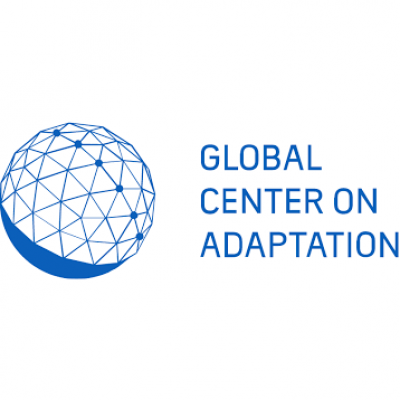Share
Print

The Global Center on Adaptation (GCA) invites registered non-profit organizations (including local and international non-government organizations, community-based organizations, universities, companies limited by guarantee) to submit proposals for the development and delivery of a Urban Climate Resilience Masterclass for Somalia.
GCA is an international organization that works as a solutions broker to catalyze action and support for climate adaptation solutions, from the international to the local, in partnership with the public and private sector. This is to ensure that we learn from each other and work together for a climate resilient future. Adapting to the impacts of climate change provides a “win-win” for livelihoods, food security, water supply, health, security, and economic growth. GCA’s work elevates the visibility and political importance of climate adaptation and facilitates solutions, such as smarter investments, new technologies and better planning for more resilience to climate related threats. GCA is a rapidly growing organization with offices in Abidjan, Beijing, Dhaka, Groningen, and Rotterdam and a planned new office in Nairobi in 2025.
GCA’s 2020-2025 business plan and strategy have three pillars:
GCA is seeking a partner to support GCA’s technical assistance for World Bank’s Somalia Urban Resilience Project II (SURP-II). The partnership will aim to produce the following outcomes:
The partnership will be active between April 1, 2025, and January 31, 2026.
Please download the Call for Partnerships document for more information
The project will have three outputs elaborated below.
Output 1. Co-design workshop
The partner will deliver a co-design workshop, which should bring together the SURP-II Project Implementation Unit (PIU) under the Ministry of Public Works (MoPW), World Bank, key Somali stakeholders (e.g., representatives from different levels of government), host training institution (which will be rolling out the training in Somalia in the long-term), and content experts, as well as GCA staff. To ensure full familiarity with the content of the existing UCRMC materials (which are Kenyafocused) could be shared ahead of the session with relevant participants. Based on the existing structure of the UCRMC (as detailed in Annex 3), the co-design workshop is expected to:
A module on nature-based solutions may be included to increase awareness and capacity on NbS for urban resilience. This module should incorporate results and findings from GCA’s work which document existing urban resilience nature-based solutions in Kenya and the region, and will leverage GCA’s existing training materials on nature-based solutions.
Output 2. Tailored UCRMC training materials
The outcomes of the co-design workshop should be used to tailor the existing UCRMC materials into a course suitable for an FCS setting. The course materials should be developed in a way that they can be either delivered in-person over 4-5 days or be used for self-paced learning. These materials are:
Output 3. Trainings
The UCRMC is expected to be rolled out by leveraging a training of trainers (ToT) approach, followed by two pilot trainings. As the fragile security situation in Somalia poses significant risks for travel, in consultation with the WB, Kenya was identified as a potential host country. Subsequent training programs to local government officials will be delivered in Somalia by a host institution, which will be identified by key SURP-II stakeholders.
In summary, the rollout of the UCRMC will consist of the following key outputs:
The logistics of the co-design workshop and ToT (e.g., venue, catering, and material printing) will organized by the partner. The rest of the costs of the co-design workshop and ToT (e.g., travel and accommodation of participants) as well as all costs of the pilot trainings will be covered under SURP-II. Thus, these logistical elements should be budgeted in the proposal accordingly.
Coordination: GCA will manage relationships with IFI teams and their local implementing partners. The partner will engage these stakeholders only through GCA liaising. GCA may onboard a technical coordinator to guide the partner’s development and delivery of the UCRMC. GCA will hold biweekly meetings with the partner to track progress and to discuss any pending issues.
Reporting: The partner will be required to deliver quarterly narrative progress reports and financial reports to GCA throughout the execution period to document the progress of activities. Upon completion of all activities, the partner will deliver final narrative and financial reports. The templates for these reports will be provided by GCA upon signing of the sub-grant agreement.
Only registered non-profit organizations (i.e., INGO, NGO, CBO, Universities, Company Limited by Guarantee) are eligible to receive a sub-grant from GCA.
The organizations responding to this call must meet the minimum eligibility criteria and demonstrate their capacity to implement all the technical criteria.
Proposals and all supporting documents must be submitted as a PDF, no later than 18/03/2025, 5pm Central European Time (CET) to subgrants@gca.org and cc’d to Talia Meeuwissen (talia.meeuwissen@gca.org).
Proposals must include (which can be submitted as separate documents):
An information session for all organizations interested in applying and learning more about the application process and project requirements will take place on 06/03/2025. The meeting can be accessed on that day and time at the following link (Teams Meeting ID: 372 644 376 155, Passcode: 5ru6A9bU).
Important to note:
Proposals received after the closing date and time will not be considered. Organizations will be notified once a decision about the Sub-Grant is made.
For all questions or requests for additional information contact Talia Meeuwissen (talia.meeuwissen@gca.org). The email subject heading should be clearly marked with the following information: SURP UCRMC Training Partner. If an interested organization has concerns about completing the template, please reach out.
Proposals and all supporting documents must be drafted in English.
GCA reserves the right to decline disclosure of the specificity of decision derived by GCA mission due to reasons related to confidentiality.
GCA reserves the right to accept or reject any submissions, and to annul the selection process and reject all submissions at any time, without thereby incurring any liability to the affected implementing partners.
